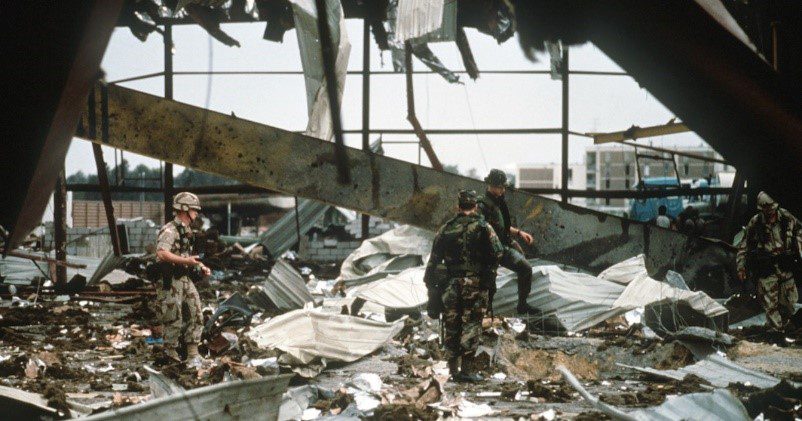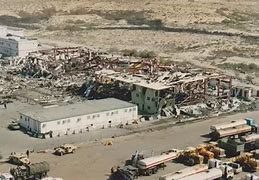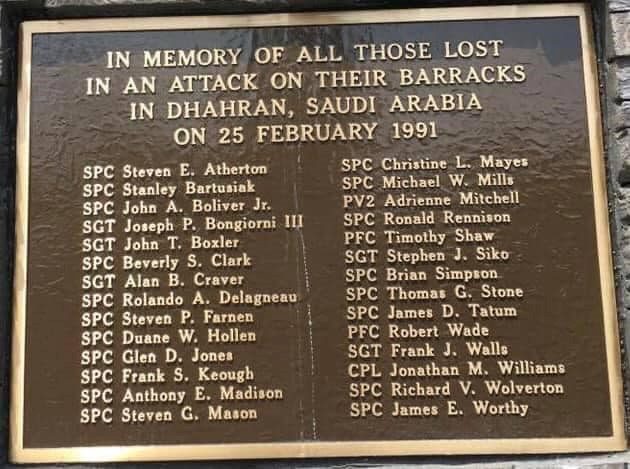
Stanley W. Bartusiak
Corporal, United States Army
May 18, 1956 – February 25, 1991
Age – 34
Romulus, MI
Operation Desert Storm, Persian Gulf
23rd Replacement Detachment, United States Army Reserve
Killed inside a barrack during a SCUD missile attack
SP4 Stanley W. Bartusiak, a utility company worker in Romulus, MI was called to active duty just after the war in the Persian Gulf began. SP4 Bartusiak, a tank mechanic, and his wife, Diane, were married two days before he left for training camp and then the Gulf. He had two sons from a previous marriage Edwin and Matthew.
He was one of 28 American soldiers killed when an Iraqi Scud missile hit barracks housing an Army reserve unit in Saudi Arabia. The barracks was the makeshift home of a group of Army Reserve Quartermasters from Pennsylvania. When the missile hit, it was 8:40pm and the troops were winding down, eating dinner, or relaxing for the night.
Twenty-eight soldiers died from the attack. Another 110 were hospitalized and over 150 experienced minor physical injuries and/or subsequent mental health problems. It was the single largest loss of life for American troops in the entire Gulf War — more than one-third of all U.S. soldiers killed during the war.
Baghdad Radio hailed the attack, saying the missile struck “the coward traitors who mortgage the sacred places of the nation . . . and turn Arab youth into shields of flesh.”
As air raid sirens wailed across Dhahran about 8:30 p.m., the incoming missile could be seen descending in a fiery arc against the cold desert night. It crashed in a roar of flame directly into the hangar-like, three-story former warehouse in Khobar city, just outside Dhahran.
“It came very slowly, then it fell and exploded, very loud,” said Mohad Raies, a 34-year-old Indian construction worker who watched in fear through his gas mask as the missile landed 100 yards away. “It was a tremendous explosion. And then the fire. It is horrible.”
“There was a huge fireball in the air, and huge pieces of flaming debris came raining down, like a Roman candle,” he said. “The explosion shook the ground. Then there was a second, smaller explosion.”


